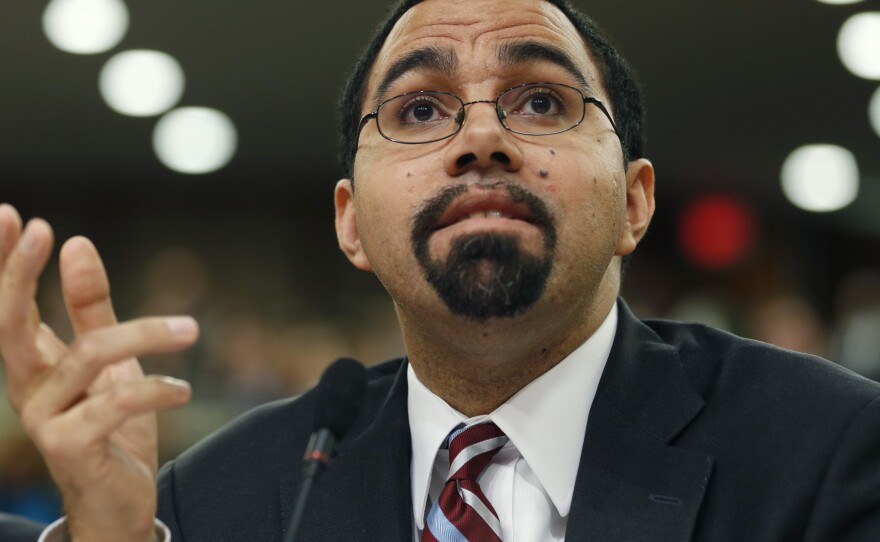Acting U.S. Education Secretary John B. King Jr. wants states and districts to focus on streamlined, higher-quality tests in a broader effort to win back some classroom time.
And here's the kicker: The feds will actually pay for (some of) the transition.
"Good assessments can be part of great learning experiences. But simplistic or poorly constructed tests just take away from critical learning time without providing useful information," King said in a video announcement. "Despite good intentions, there are too many places around the country where the balance still isn't quite right."
The federal law, recently updated, still requires that students be tested once a year in math and reading between third and eighth grade and once more in high school.
But a report last year found that students take an average of eight standardized tests annually, in kindergarten through 12th grade. And these tests are being administered for a wide variety of purposes: among them diagnostics, benchmarking and practice tests.
The announcement put some flesh on the bones of a high-profile call to reduce unnecessary testing made by President Obama last fall. To help schools cut down, the Education Department has announced more details of how federal money could be used to "audit" testing programs, to eliminate redundancy and get rid of "low-quality" tests. The department included links to resources on how to conduct such an audit.
The department also says federal money can be used to improve tests, and to help teachers and parents better understand and learn from the data they get from those tests. Officials singled out sites from Louisiana to Rhode Island that they say are making good changes in their assessment programs.
As the department notes in its letter, improving testing is a path to "help schools recruit and retain highly qualified teachers." That's because overtesting has become a huge sore point for teacher morale nationwide. It's also drawn ire from families.
But King's call for "ensuring assessments move beyond bubble tests" to "multiple measures," including "writing, problem-solving and critical thinking," may be a tall order. With the adoption of the Common Core (followed in many states by the rejection of those standards), states have already seen rapid turnover in their assessment regimes in the last decade or so.
Copyright 2016 NPR. To see more, visit http://www.npr.org/.






